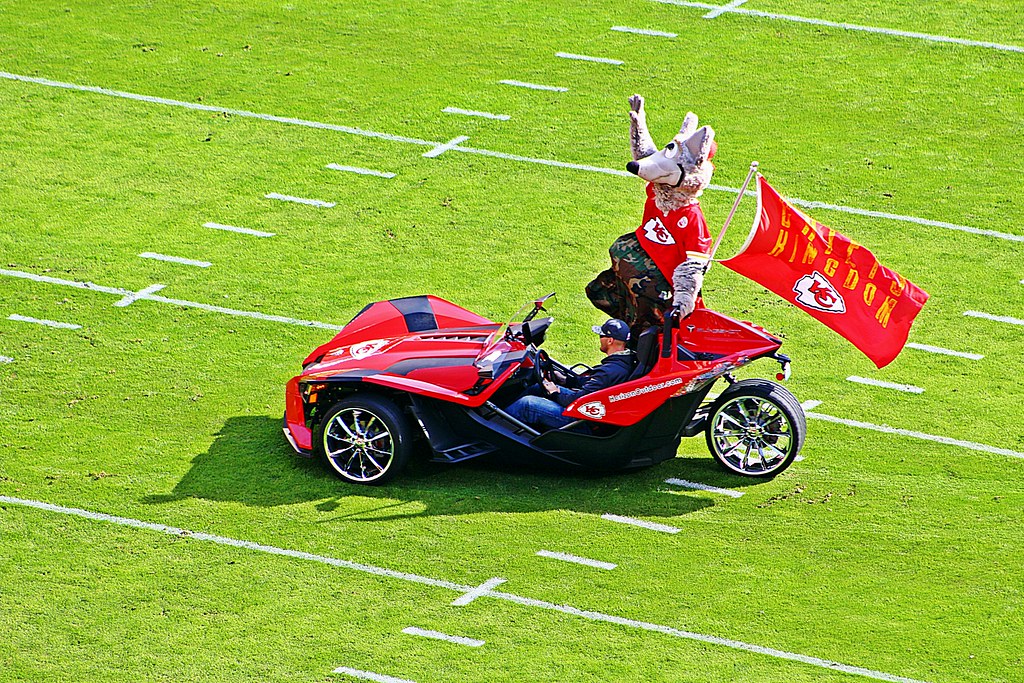
On Feb. 7, many Kansas Citians were profoundly disappointed after the Kansas City Chiefs lost 9-31 to the Tampa Bay Buccaneers in Super Bowl LV, losing the title of champion of the NFL for the 2021 season. However, this Super Bowl season could entail an even more profound loss: a rise in COVID-19 cases as a result of game attendance and watch parties.
The seven-day average of new COVID-19 cases in the United States has dropped from 220,000 on Jan 6. to 120,000 Feb 6. After a surge in cases during the winter season as a result of gathering during the holidays, this dip in new COVID-19 cases is a much-needed reprieve for hospitals and front-line and essential workers. Many experts fear that the Super Bowl could come at just the wrong time and cause an uptick in COVID-19 cases.
Still, the NFL took precautions and the Super Bowl looked different this year. The NFL distributed kits to fans at the game that included KN95 masks and hand sanitizers. The Raymond-James Stadium, which has a max capacity of 65,000 seats, was limited to fewer than 25,000 seats. Of those seats, 7,500 seats were reserved for vaccinated health care workers.
Tickets were sold so that fans could sit together in pods, or groups of two to ten people. These pods were distanced from each other so that nobody was sitting directly in front of or behind anyone. The stadium itself also went rigorous cleaning before the Super Bowl game.
The NFL also provided customized entry points for fans at the stadium. Working with BioReference Laboratories, the NFL distributed approximately 35,000 PCR tests to staff and vendors at the stadium. Furthermore, the NFL partnered with Visa to set up cashless transactions.
Jane Castor, mayor of Tampa Bay, issued a mandatory mask mandate for areas surrounding the Super Bowl game. Prior to the big game, Castor and Kansas City Mayor Quinton Lucas released a joint video urging people to remain cautious and follow safe COVID-19 protocols.
This joint video highlights one of the more pressing concerns having to do with the Super Bowl game: the potential spread of COVID-19 through watch parties held in private households. According to Dr. Dana Hawkinson, director of infection control for the University of Kansas Health System, these watch parties are very conducive to the spread of COVID-19.
“If you have 10 or 20 people you are meeting with, there is a very good likelihood that one or two of those people will have COVID-19,” said Hawkinson, “If you are in a small enclosed space, then three of four of those people will get it.”
In an attempt to counter the potential uptick in COVID-19 cases that could arise as a result of these private watch parties, the KCMO Health Department advised Kansas Citians to watch the game with members of their own family and to have a Zoom virtual party with people outside of the household.
This advice offered by the KCMO Health Department is in alignment with what the nation’s top infectious disease expert, Dr. Anthony Fauci says. When asked whether people should have Super Bowl watch parties, Fauci responded that he believed that people should “just lay low and cool it.”
However, it is one thing to advise people against having watch parties, and another thing for people to actually take this advice. Furthermore, people in Tampa Bay have been flouting COVID-19 regulations in plain sight during post-Super Bowl celebrations, which cast a shadow over any sort of hope of people adhering to regulations in private.
Experts already predict a spike in COVID-19 cases in Tampa Bay as a result of fans celebrating in downtown Tampa after the Buccaneers won. Videos show packed streets filled with maskless people shouting – perfect conditions for the spread of COVID-19.
A lot of the people in these videos are younger, which means that they are more likely to either be asymptomatic or have milder symptoms of COVID-19, ensuring that they will be more effective sources of contagion for other people, who will in turn experience more severe symptoms of COVID-19.
Has the Super Bowl, then, concretely led to increases of COVID-19 in Kansas City and the surrounding area, Tampa Bay or other parts of the country? It was, after all, an international event, with many people coming out to enjoy the celebrations. Unfortunately, it is too early to tell. Experts will know for sure once people start to get hospitalized and contact tracing can begin in two to eight weeks, but the prognostics do not look good.
